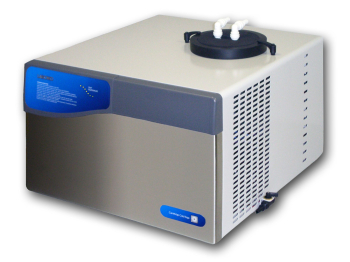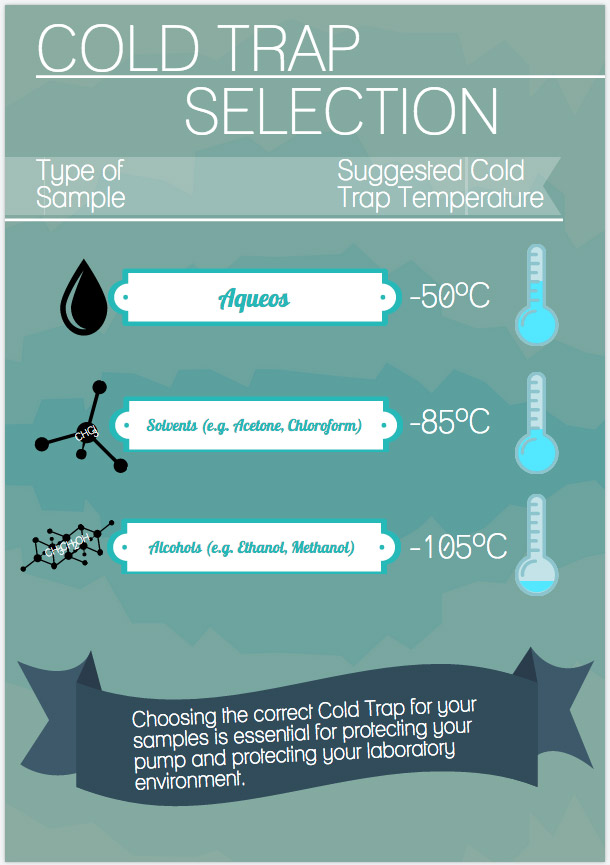How to select the correct Cold Trap
 The purpose of Cold Traps:
The purpose of Cold Traps:
During laboratory evaporation, the main function of the Cold Trap is to collect harmful vapors before they enter the vacuum pump. For a vacuum pump that requires oil, collection of solvent vapors is essential to prevent them from collecting in the vacuum pump’s oil. Also, if corrosive or water vapors collect in pump oil, the vacuum pump will be damaged and eventually the vacuum pump will cease beyond repair.
For non-oil based vacuum pumps, collecting the vapors prior to the vacuum pump makes the evaporation system a closed system, preventing vapors from passing through the vacuum pump and into the environment.
How Cold Traps work:
In the evaporation process, the Cold Trap is the coldest spot in the evaporation system. Vapors naturally migrate to the coldest spot, where they freeze and are trapped in the condenser. Because of this natural migration of the vapors, Cold Traps can also increase evaporation rates since vapors are collected as a frozen solid (and are therefore not condensed inside the vacuum tubing, which would slow evaporation).
How to select the best Cold Trap for your samples:
 Cold Traps are offered in three temperature levels: -50°C, -85°C and -105°C.
Cold Traps are offered in three temperature levels: -50°C, -85°C and -105°C.
Choosing the correct Cold Trap temperature will optimize the moisture trapping efficiency. It is important to select a cold trap capable of reaching a temperature that is colder than your sample’s freezing point.
For example, when testing an application using the solvent methylene chloride, which has a freezing point of -96.7°C, a -50°C Cold Trap collected 43.3% of the methylene chloride, while a -105°C collected 87.7% of the initial starting volume.
For water samples, the -50°C will collect the same amount as the -105°C Cold Trap. If the sample contains a mixture of solutions, the Cold Trap temperature should be matched to the component with the lowest freezing point.
Following this general guideline will ensure the best trapping efficiency thus preventing vapors from going into the pump and the environment.
| chevron_left | Application Note: Safe Chemical Handling in the Purifier Axiom | Articles | Time for a New Type of Biosafety Cabinet? – The Axiom | chevron_right |






